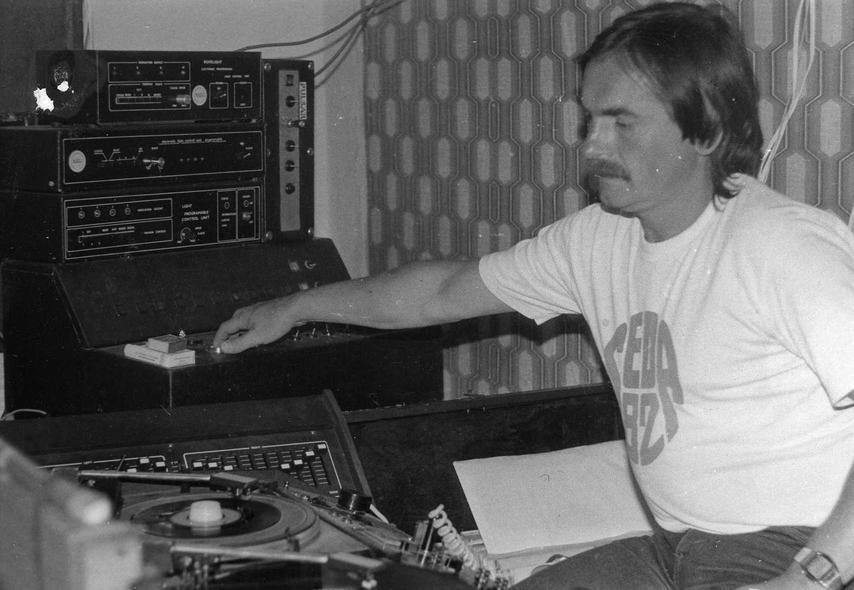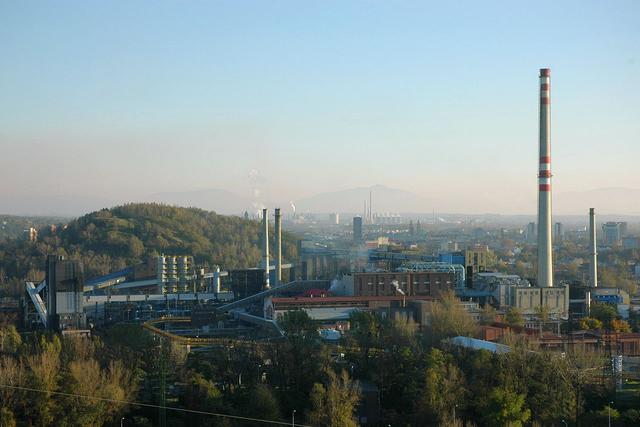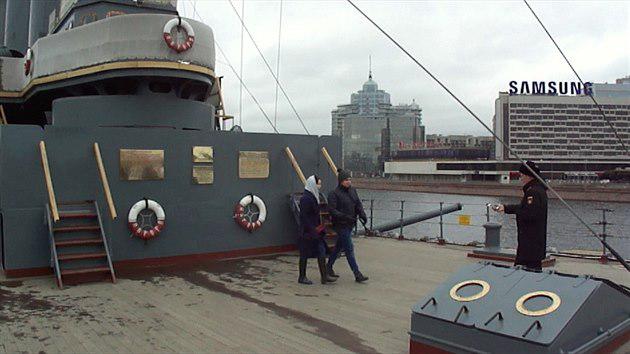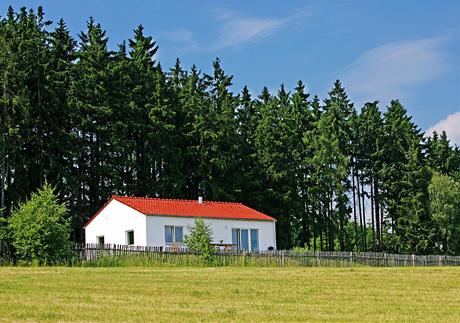
Jan Tůma: Climate Neutrality and Industry. It's time to stop braking with your heels
Did you forget the password? Change them. Only those who have already registered can apply.
Politicians and lobbyists often frame the situation of the industry so that either everything stays the same, or that the company packs up here and moves to China, which will not want any green folly. However, this is a manipulative false dichotomy, because of course there are alternatives, they just don't like to talk about them. This would mean a fundamental reassessment of the activities to which they have often devoted their entire lives and which humanity has been honing for perfection for millennia. Climate neutrality will be a major challenge for industry, but at the same time, industry can change from part of the problem to part of the solution.Industry usually consumes a lot of energy - for heating material, firing products, for the production of compressed air, high-pressure steam, etc. Most of the energy needs are met by electricity, which I have already written about.
However, some sectors need a really large amount of concentrated energy, and with that, electricity can have a problem due to network capacity. So somewhere the capacity of the network will be strengthened, elsewhere it will switch to hydrogen. Hydrogen will be needed a lot, for transport and industry, it will be produced by electrolysis from RES and imported from countries around the EU (it can take different forms - in Italy they will have a gas pipeline renovation to 100% hydrogen by 2030, or it will be imported only we produce electricity by wire and hydrogen here, or for transport purposes, hydrogen is converted into ammonia…).
Hydrogen has a great future for its wide use and relative availability, we need a lot of RES, electrolyser and water. 240 l of water are needed to produce 1 MWh of energy in hydrogen - just over 3000 l is used in the production of 1 MWh in a nuclear power plant. Hydrogen can produce electricity in a fuel cell, it can burn to produce heat, it can be produced when mixed with CO2 synthetic methane and can replace greenhouse gases in various chemical processes.
Steel
Steel is an important material because it can be recycled over and over again. The scrap will not be melted in blast furnaces, but in electric arc furnaces, and they will need a lot of RES and a reinforced network. Not all steel can be produced from scrap, but only a marginal amount will be produced from ore and no coke will be used for reduction, but hydrogen - H2O will be produced instead of CO2.
Glass and ceramics
Electricity or hydrogen is used for melting and firing. Glass is quite similar to steel in terms of recycling. However, carbonate emissions occur during the smelting and firing of raw materials and they cannot be easily removed, see cement below.
Cement
It's hard with cement. We need lime, and it is produced by decomposing CaCO3 limestone into CaO and CO2. There is no other way. It is therefore possible to switch to other materials and use the cement only when absolutely necessary, while the emissions generated are captured and either used as raw material or stored in geological structures.
Chemistry
Chemistry is a very diverse field. Many emissions arise from the production of nitrogen fertilizers from the decomposition of natural gas - it will first replace green hydrogen, but over time it will switch from nitrogen fertilizers to more environmentally friendly fertilizers (wood-based, wool-based). Polymers and plastics will be produced from bioethanol (waste, algae).
Yes, materials will be more expensive than today. I read the estimate that a "green" washing machine will cost 20 euros more and a green car 600 euros more, that comes to me quite a bit, I would expect a tenfold difference.
Coke plant Svoboda in Ostrava-Přívoz, illustration. License | Some rights reservedPhoto | Petr Stefek / Wikimedia CommonsIn general, the economy will be much less demanding on materials, and these will be recycled in the circular economy. Disposable materials and packaging will end.

And it is very important to realize this: by 2050, we are likely to use completely new materials, the development of which is now in its infancy. Humanity is always coming up with new material that will change the appearance of industrial production - Napoleon's aluminum cutlery, which he ate only in the company of the most respected visitors, is anecdotal, because aluminum was an absolute rarity. When a cheap and efficient method of production was discovered at the end of the 19th century, the prestige of aluminum declined and its widespread industrial use increased.
For the 20th century, the discovery of the synthetic production of nitrates, which are made into fertilizers - and explosives, was a double breakthrough. We have witnessed the often boom in plastics, and we will be seeing their partial replacement with new materials, be it algae, sponges, carbon fibers or something else.
For today's industry, climate transformation is complex from another point of view - the factory is not just about producing one product, such as steel, but also processes a number of different chemical by-products and building elements. When we get rid of coal in power plants, we also lose gypsum board, which is made from gypsum from desulphurization. The change in the production of one product thus means the need to completely dig over the entire production network, and industrial moguls, of course, do not want that.
In the approach to climate neutrality, industry in the "western" and "eastern" states is very different. While in Germany, the Netherlands and Sweden the industry is aware of the impending change, invests huge sums in research with the state, uses European innovation programs (eg green steel production in Sweden, hydrogen heating plants and trains in Germany) and sets deadlines. , until it is climate neutral, the picture is different in the Czech Republic. The Green Deal is perceived here exclusively as a threat, and all lobbyists are trying to stop or at least slow down the ecological transformation. They negotiate with the state almost exclusively on compensation, but rarely on promoting climate-neutral investments.
The Confederation of Industry and Transport, the Chamber of Commerce, is blocking the stalemate and threatening bankruptcy and unemployment. Businesses are, of course, quite confused, because on the one hand they hear about climate neutrality, allowances and clean investment funds, but on the other hand they hear the thunder of conservative politicians and industrial pundits promising them that there will be no Green Deal, coal will burn and that they will go to Brussels to negotiate. You make a pencil, Peter. The only result is that the Czech industry is stepping on the spot, hesitating to invest and looking around when someone finally negotiates something, because the allowances are really pushing him, but he does not want to be an ox and invest in clean technologies when everyone is fighting. breasts that will arrange to be everything as before. And so nothing happens. Swallows of a climate-neutral industry in the Czech Republic are thus companies that have Western European mothers. Is Skoda or politicians complaining about the end of internal combustion engines?
What can the system do?
Stop fogging. The government should honestly and clearly explain what awaits us and how we will achieve this goal, what it will do to protect the competitiveness of Czech companies, how it will protect vulnerable groups and why it all makes sense at all. Provide a clear perspective so that companies know what to invest in today and what will not pay off in the long run.
Tune support mechanisms. The Czech Republic has a wide range of tools at its disposal to support green investments, but it cannot simply implement them and clearly offer them. We have X different funds, one more complicated than the other, and no one really knows it.
Initiate forums and working groups where cooperation between companies, schools, the state and local governments on green investments and changes in production clusters will be addressed. Today, when the Minister of Industry arrives at a meeting of the Steel Union, he listens to how much steel was produced last year, that there is expensive electricity, that there are Chinese dumped imports, takes a sandwich and goes home. The state should ask the industry, "What can we do for you to be climate neutral?"
Ensure sufficient RES, energy infrastructure and conditions for the use of green hydrogen.
What can you do?
Want politicians and leaders to stop fogging. Ask them for a concrete plan for the transition to climate neutrality.
If you do business, calculate your carbon footprint, for example here or here. Try to think or advise someone on how to replace individual emission sources. Anyway, it will come in handy soon, for example in non-financial reporting. And if the allowances don't apply to you yet, they will most likely be for years to come, so it's good to be prepared.
Climate change series
How will one live in a climate-neutral society? The climate change series begins
What tools do we have to reduce emissions?
Attitudes of political parties to climate protection
The second wave of electrification awaits us
The second wave of electrification awaits us
Normal will not have a car
What could housing and heating look like in a climate-neutral society?
Climate neutrality and industry. It's time to stop braking with your heels
What will the financial sector look like in a climate-neutral society?
Climate neutral society and personal consumption
Climate neutral society and food
Climate-neutral society, the European Union and the world
advertisement







